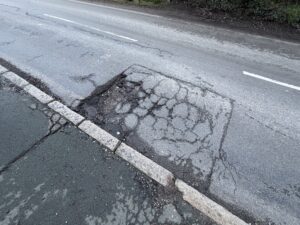The UK economy could benefit by £1.6 billion every year by reducing premature deaths, sickness and lower productivity at work if World Health Organisation (WHO) guidelines for air pollution were to be met.
This is the highlight from a major new study produced by CBI Economics, the CBI’s economic analysis arm, commissioned by the Clean Air Fund, which quantifies the economic benefits that could be realised if the UK were to meet air quality guidelines recommended by the World Health Organization (WHO) which are stricter than current UK legal limits.
Breathing life into the UK economy says reducing pollution to WHO levels could prevent 17,000 premature deaths each year of people of working age, who are dying nearly 12 (11.8) years earlier than expected, on average.
For businesses, a loss of 3 million working days per annum could be prevented from meeting the WHO’s guidelines, with workers currently becoming ill or having to take time off to care for sick children as a result of air pollution. Due to the increased time spent in work, individual workers could benefit from increased earnings of £900m in total overall.
The report is believed to be the first analysis of the economic benefits of reducing pollution levels such as nitrogen dioxide (NOx) and particulate matter (PM 2.5) to what are considered ‘safe levels’. The WHO guidelines for PM2.5 (a form of microscopic pollution) are more than twice as stringent as UK legal levels (10 µg/m³ annual mean vs 25 µg/m³ annual mean).
The £1.6bn annual benefit to the UK economy would be on top of savings to NHS and social care budgets from treating fewer patients with health conditions associated with pollution. Air pollution can trigger cardiac arrests, strokes, severe asthma attacks and is associated with diseases such as lung cancer and COPD, with thousands of deaths and hospitalisations every year, says the report.
The findings show that Birmingham, Bristol, London and Manchester could stand to gain £25m, £7m, £480m and £28m respectively every year by reducing air pollution. Clean Air Zones were due to be launched in these cities, but all plans have now been delayed until 2021 and beyond.
Jane Burston, Executive Director of the Clean Air Fund, said: “We know clean air makes us healthier, but our research shows it can make us all wealthier too. If businesses and government work together to ensure clean air for all, we can protect our health and re-energise the economy at this critical time. Ministers must commit to binding targets to cut air pollution in line with WHO guidelines by 2030.”
Click here to view the full report.
























